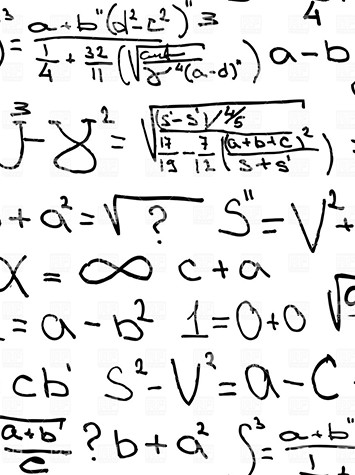“Society pushes men to be more methodical and pushes women to be more creative”
Steve Haley has an interesting resume. He studied to be a mathematician, went on to work with Mercy Corps and he uses math in motivational speaking. After seeing him speak at TEDx AUC, we had to meet him for an interview. We discussed women in mathematics and entrepreneurship. And the number 8, of course.
You use mathematics for motivational speaking. Where did this concept stem from?
When talking about entrepreneurship, anyone should be speaking from experiences. And that’s been the constant throughout my experiences, math. Honestly, right now in Egypt, people are not going to connect with someone who works for an international NGO. My experiences weren’t something that a lot of Egyptians would connect with. So I was hoping that math would be something that’s a bit more universal.
How can we use numbers in everyday situations in a way that would motivate us?
You could track how you’re doing on something. Like the number of days since the last time you’ve had a cigarette, the number of calories that you’re eating… etc. It’s nice to have a goal and to be able to work towards that goal.
If you were to make one of your motivational speeches revolve around the number 8, how would you do it?
The first thing anyone in math would think about is that the infinity sign is the number 8 on its side. So I would say it is tied to the idea of infinity and the universe all complete together. We can tie in concepts of what it means to be part of a larger system, and the importance of considering the larger system around you.
The Octal number system is when units are divided into 8 sub-units. It’s used a lot when it comes to computers. Mind explaining to us why this number system is significant?
I’m not an expert on computer science. However, my understanding is that it’s all binary. When you combine roots of binaries together then you get to an octal number system, because 8 is the cube of 2. Why there are 8 binary digits? I honestly don’t know.
Do women make good mathematicians?
Anyone could make a good mathematician if they wanted to be good mathematicians. Anyone could make good anything if they wanted to. It’s unfortunate that society puts certain restrictions on people’s way of thinking. Society doesn’t discourage women from being mathematicians; it discourages everyone from being mathematicians.
There’s a stereotype that women and men think differently, when it comes to mathematics and numbers, who does it better?
Society pushes men to be more methodical and pushes women to be more creative. When we’re in high school, men learn math because they should go off to be engineers. After getting past high school, math is much more an issue of creativity. So if you get past the methodical learning in high school and get to the creation aspect of it in university, it’s no longer an issue. So if we go by society’s gender stereotypes, if a woman can get past that in high school she can be an amazing mathematician. She’s probably been taught to use her creativity better.
There is a misconception that women aren’t very good at mathematics. They’re expected to take care of the money at home, though, why do you think this happens?
Because men are lazy? (laughs) I recommend the book Half the Sky. It talks about the large return on investment of investing in girls’ education. It found that in households where women are responsible for household income there’s a higher investment into education, food and healthcare. The unfortunate thing is that often women are given the responsibility, but not the authority for the household budget. That’s a very important distinction.
You work with Mercy Corps, which helps out impoverished communities. Does your work affect women living in Egypt? If so, how does it do that?
Hopefully if there’s anything that we’ve done by being a part of the investor community, it’s this: Trying to educate investors that knowing your customer also means knowing women entrepreneurs. They’re not more, they’re not less; they’re just different.

